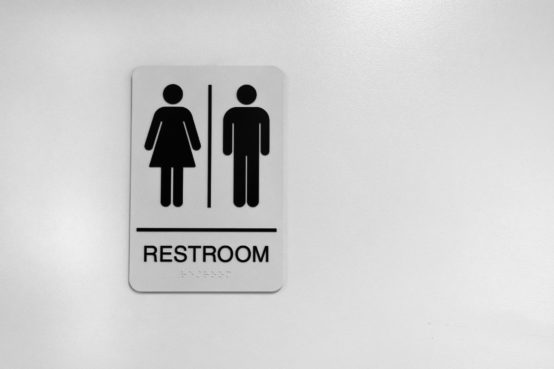Q: Most of my middle school students are responsible and reasonable about bathroom breaks, but one of my sections of 7th-grade English got out of control. The kids were just getting up and leaving, taking forever, being disruptive on both the departure and arrival ends, and generally making it hard for me to teach. So I put a new policy in place for that class. They can each go up to twice a week, for no more than 5 minutes, and they have to sign in and out and take a laminated pass with them. When I announced my new rules at Back to School Night, the parents gasped. I consider myself a fair person and was taken aback by their reaction. Am I being unreasonable? What am I missing? I honestly was kind of shocked by how upset they were. We spent the next 10 minutes talking about every bathroom-related health ailment under the sun, from urinary tract infections to constipation.
A: People do have strong feelings about this issue, and in an ideal world you wouldn’t have to legislate bathroom breaks at all. Seventh graders are old enough to responsibly take care of their needs without being disruptive. However, this section seems to be struggling more than your other classes. My first question would be why? Does this class meet right after lunch? Or after they’ve guzzled water in PE? Is it a few troublemakers or a class-wide issue? Can you identify any trends?
If it’s a few offenders, do any of them have a medical or attentional issue? Probe a bit further. If you determine that everyone is an equal-opportunity offender and there’s nothing special about the timing, I’d start by restating your behavioral expectations. Did you ever warn them that consequences could include limiting their access to the bathroom?
I worry that your new policy will inadvertently erode your relationship with your students and their parents. That doesn’t mean you can’t have rules, though. I think it’s fine to ask them to sign in and out on a clipboard and use a pass. You might also request that, barring an emergency, they go one at a time, or that they refrain from walking out at the beginning or the end of the class. But be sure to explain your reasoning — that you don’t want them to miss critical instructions or details about a homework assignment. I’d also enlist their help with the rule generation to get their buy-in. What do they think is fair and reasonable? What do they think should happen if they’re irresponsible? Why do they think there’s a problem in the first place? If your students feel respected, involved and consulted, they’ll be more likely to cooperate. Plus, you need to understand why they’re so disruptive in order to land on the right solution. In other words, talk to your students rationally, treat them like expert consultants, and convey that you understand they’ll all have the occasional emergency.
If anyone really does have a true, ongoing medical need, restricting their access to the bathroom would be cruel. I can confidently say that most kids wouldn’t want to tell their English teacher that they get chronic urinary tract infections, or that they have their period, or that they’re about to throw up. Your students’ parents reacted with dismay at Back to School Night because you didn’t leave room for any complexity. If you had added a couple caveats, they might have been less hostile.
Fortunately, it’s not too late to come up with easy, simple, fair rules that leave room for exceptions. Gather information, then engage your students in the process so it’s less adversarial. And if you want to alleviate their parents’ concerns, send an email home thanking them for their feedback and explaining your new approach.
For more Career Confidential: http://bit.ly/2C1WQmw
Have a question that you’d like Career Confidential to answer? Email to careerconfidential@pdkintl.org. All names and schools will remain confidential. No identifying information will be included in the published questions and answers.
ABOUT THE AUTHOR

Phyllis L. Fagell
Phyllis L. Fagell is the school counselor at Landon School in Washington, D.C., a therapist at the Chrysalis Group in Bethesda, Md., and the author of the Career Confidential blog. She is also the author of Middle School Matters and Middle School Superpowers, available at https://amzn.to/3Pw0pcu.










